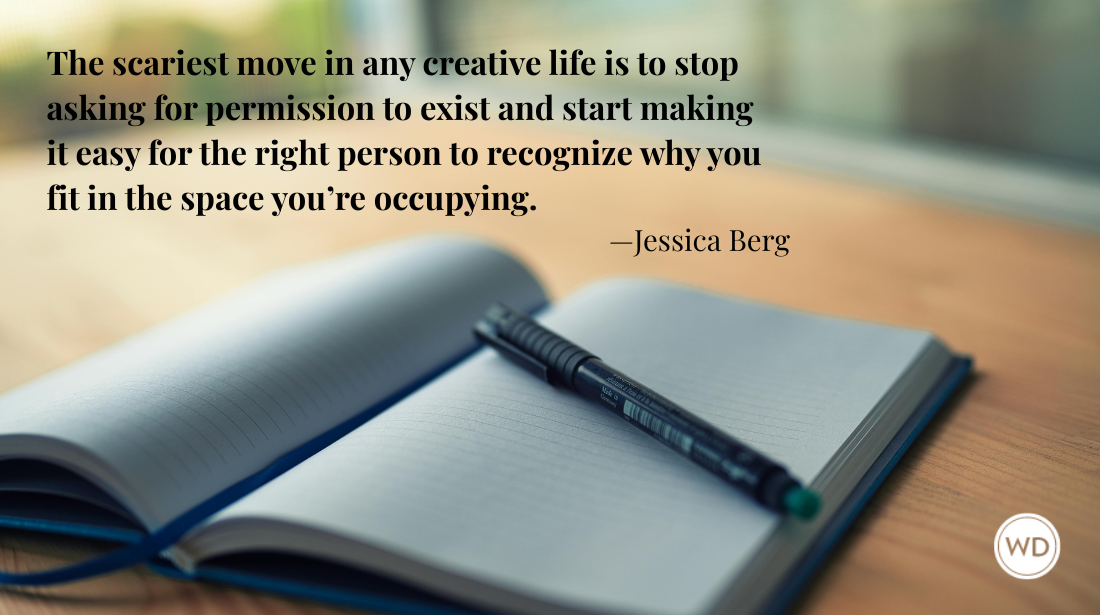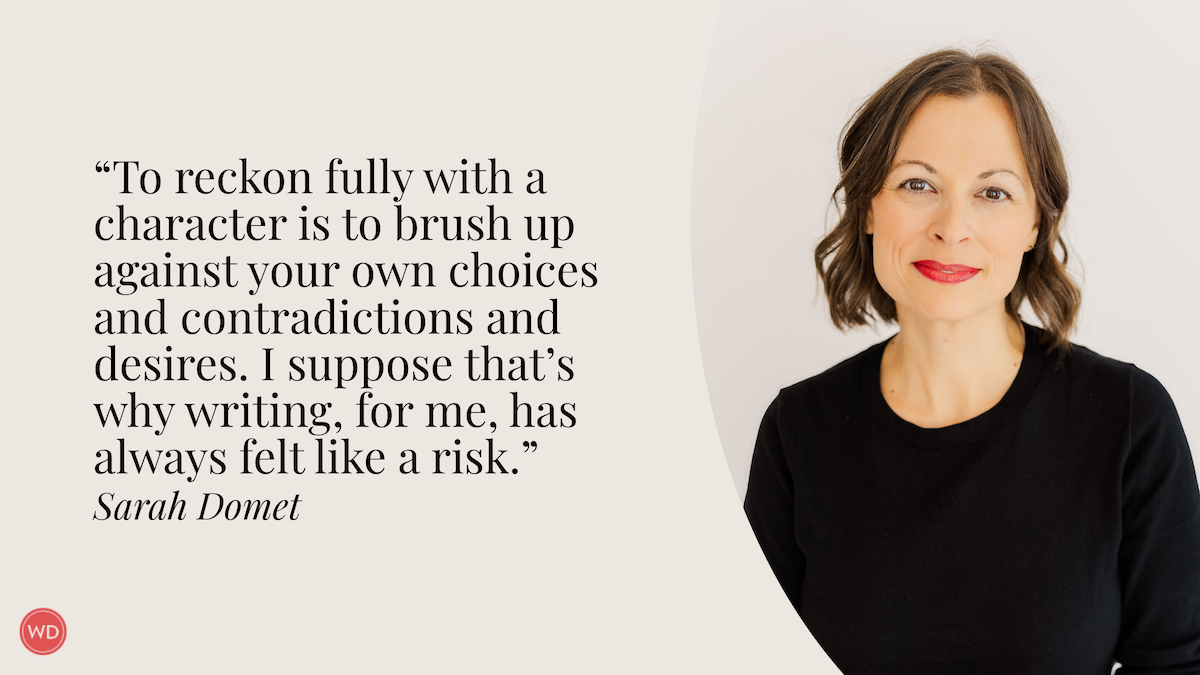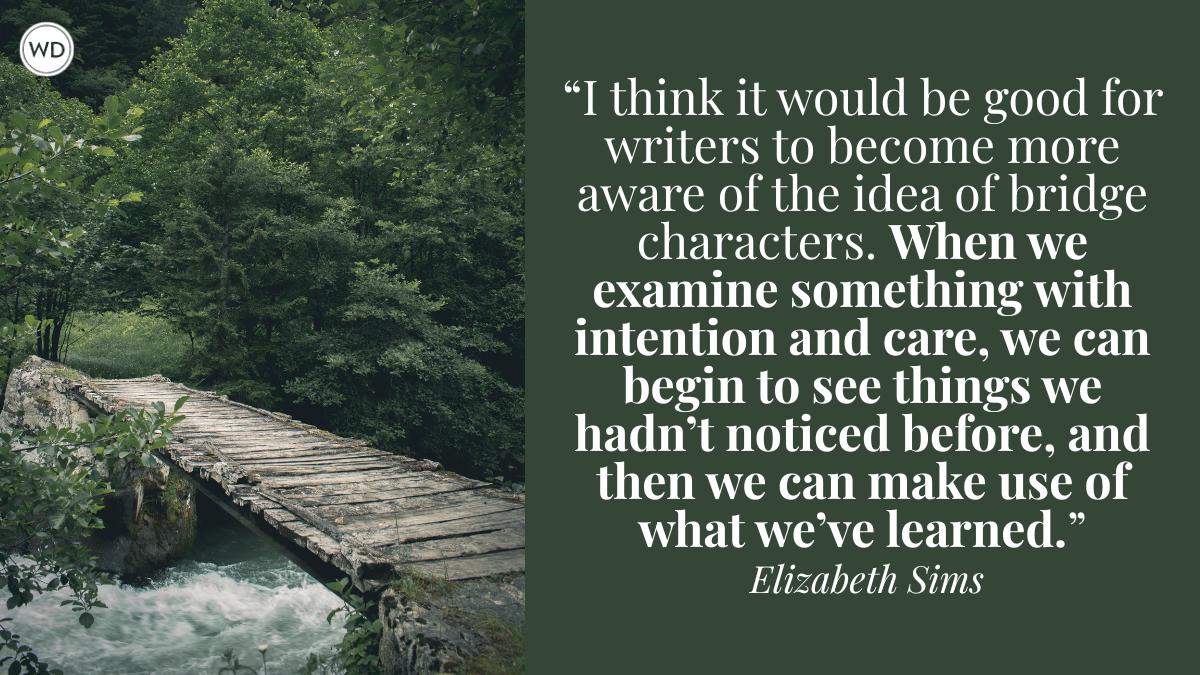Chigozie Obioma: The WD Interview
The An Orchestra of Minorities author discusses the most challenging parts of penning his Booker Prize–shortlisted novel and the Igbo culture that influenced the story in this April 2020 interview by Simon Van Booy.
Short-listed for The Booker Prize, Chigozie Obioma’s An Orchestra of Minorities is widely considered one of the finest novels currently in print. From the very beginning of the narrative, it’s clear this is fiction brought to life by a master of the genre. One early moment that attests to this is when the narrator describes a goose trailing its dead mother, which is in the hands of the main character Nonso’s father:
His father did not notice the gosling scampering along after him, making a shrilling sound which, many years later, my host would realize was the sound of a weeping bird.
One hallmark of great literature is when language possesses meaning on different, sometimes competing levels. In this case, the goose is not only a metaphor for Nonso, but could also be said to reflect the human condition through our frequent indifference to suffering.
Obioma was born in Akure, Nigeria. His debut novel, The Fishermen, won the inaugural FT/OppenheimerFunds Award for Fiction, the NAACP Image Award for Debut Author, and the Art Seidenbaum Award for First Fiction (Los Angeles Times Book Prizes); and was a finalist for The Booker Prize 2015, as well as for several other literary prizes in the U.S. and U.K. Obioma was named one of Foreign Policy’s 100 Leading Global Thinkers of 2015. His work has been translated into more than 25 languages and adapted for the stage. He is an assistant professor of literature and creative writing at the University of Nebraska-Lincoln.
An Orchestra of Minorities was published in January 2019.
What was your childhood like? Did you grow up around books or was literature something you discovered on your own?
Last year I wrote an essay for The New York Times about how I came to writing through a delirious love for reading books. It was for me a big discovery when, one evening when I was about eight or so, I discovered that the secret to the stories my parents had been telling me, acting as though they were their inventions, had been culled from books. From then onward, I read voraciously, as though my life depended on it.
What did you like to read as a boy? What interested you?
I read mostly the books that were on my parents’ shelves—for some reason, they were mostly works about Greek myths (The Oresteia by Aeschylus, works by Euripides, and others), Shakespeare’s plays, and the early Nigerian writers such as [Chinua] Achebe, Buchi Emecheta, Wole Soyinka, and Elechi Amadi, among others.
How did you decide that you wanted to write fiction? Was there a moment or an event, or was it a gradual pull toward living the life of an artist?
I think it was borne more from envy and a great lusting after the lives of the writers whom I read. I recall always asking my parents, with great sadness, when I would be able to write books like the writers I was reading, and they would reply simply: when you are older. But I could not wait! I wrote my first novel when I was 12 years old. That novel, The Dwarf King, soon became lost. I probably would have published it by now.
When and how did you discover your unique voice as a writer?
I’m not sure I have discovered a unique voice. I have only written two books.
What was the most difficult part of writing your debut, The Fishermen? How was this book a new challenge?
I think the difficulty was—and is always—finding a way to bring my vision, which is always grand, to realization on the page. That vision often entails what I think of as the soul of the conceptual framework around the story. In An Orchestra of Minorities, the vision was to tell this story in a unique way—through the voice of the chi, this curious character that is at once eccentric as it is mysterious but also fascinating for me. Since the concept of the chi is wedded to the specific cosmological beliefs of a people and not a fantastical creation, I had to be true to that worldview. So, the book required research, which was not something I was used to doing for fiction and definitely not something I did for The Fishermen.
To what extent was Igbo mythology part of your life growing up? Were people around you familiar with the stories and characters who play key roles in your novel?
Most of my early knowledge of it came from my mother. She grew up in an unusual household, as her father never really converted to Christianity unlike most Igbos. So, she grew up in a village, attuned to the practices of Odinani, the Igbo religion. So, when something unusual happened, she would often speak in cryptic terms, alluding to the failure of strength of one’s chi. And of course, the chi ontology is writ large in my name: Chi-gozie, which is an evocation of the chi to bless its host, and is common in many Igbo names like Chinua, Chinonso, Chidinma, etc.
When did you begin to cultivate a deeper interest in the stories and hierarchies that enriched and guided the lives of your ancestors?
I did not come to this kind of thinking out of some form of bitter nostalgia. It came from looking at Nigeria and studying its past and present. I feel like something happened in the transition into statehood—in the aftermath of colonialism—that destroyed the moral center of the people. In precolonial times, for instance, there was a unity established in the Igbo society that emphasized selflessness and the common good as the greatest moral virtue in the individual. It had, at its center, the necessity for communal cohesion as the most essential goal and aspiration of the individual, so much so that the Igbo ethic of justice was predicated on the oha, that is people or the masses, and the god of justice as Amandioha, or the wisdom or judgment of the people/masses. But now, there is a complete change. The idea of the common good seems almost nonexistent in Igbo land, as it is every man for himself. Everyone on the streets, everywhere, seek their own gain, and because the people produce their own leaders, that avarice and selfishness manifests on the platform of government and governance. So, for me, I’m the guy who is digging up these buried philosophies, these bushelled cities, and bringing them up to my people and saying, “This is not who we are, we were better than this.”
Although I admire the inventiveness and humor of many contemporary novels, I find that I often can’t connect emotionally to the characters. I love your writing because I feel immediate compassion for people in the stories, such as the poultry farmer, Nonso—even his lover, Motu. How do you build character? Is each person based on someone you know? How is everyone so realistic?
Most of the characters I create come from people I know. Of course, Chinonso himself was inspired by a person whom I knew and whose journey I wanted to retrace. But, I work on the central idea that plot must be a function of characters, and therefore, understanding and fleshing out characters is the utmost duty of the writer, so that the plot and events that culminate in the novel will emerge organically out of the characters.
Most novels in English that are written in third person never address the gulf of conceit between the narrator and the character. For instance, most readers seldom ask of the narrator, “Who are you? Where are you? Why are you telling me this story?” I find that you miraculously overcome this problem by choosing, as your narrator, the spirit chi of the protagonist, thus achieving the closeness of first person, with the reflective, self-analytical poignancy of third person. How did you come up with this literary device?
I wanted the narrator of this story to be one who will transcend time and be able to tell the story wholly, while also being a chronicler and teacher of history and the civilization of the Igbo people. The chi affords me this liberty—it has lived for many centuries, has reincarnated many times, and ensouled many characters ranging from one who was a slave to a soldier who fought during the Biafran war. It has, as it says frequently, seen things many times. But also, this is in keeping with the way most of the fascinating stories in the Igbo tradition were told: as stories of witness. An accused stands before a jury and attempts, under duress, to narrate a story. There is often a lot of circumlocution, meandering, loss of memories or mis-rememberings, so that the product is often circuitous rather than direct and sometimes infuriating, but often wedded to the truth since they would have sworn before a punitive deity capable of striking them dead were they to tell a lie. This is what the chi does in this novel.
Also, on a technical level, the chi is all that you mention: It breaks the boundaries of narrative perspectives. It is telling its own story as well as the story of its host, Chinonso, so is both a first- and third-person narrator. Then, sometimes when it addresses the high court of spirits, it becomes a second-person narrator.
I often read books that are intriguing and brilliant when it comes to story, plot, and character development—but rarely do I come across a novel that is also written with such original use of language. I’m thinking of lines such as, “Insects dashed against the windshield and burst like miniature fruits until the glass was covered with small mucks of liquefied insects.” Do such lines come naturally, or are they the result of a painstaking editorial process?
Ha, I will say the latter. I have often said that I see fiction as painting and since words are the only canvas we have, I would love to do with it what I can. So, I pay very much attention to trying to paint pictures through words, to create a sense of verisimilitude. That said, the process of getting the right word is painstaking and can take anything from two rewrites to 20. There is a line in the novel people often quote: “The world spins on the noiseless wheel of an ancient patience by which all things wait and are made alive by this waiting.” I was sorting through my notes recently and found about 10 versions of that line, written and crossed out and written again over several months, and now everyone speaks of it as if it simply dropped into my mind.
What is your writing process? Tell me about that, and some unique habits you have in your daily writing process.
My process is this way: I get the seed of an idea planted in my mind. It could be from any source, mostly through observations or some kind of conversation. I begin to think deeply about this idea, and a story forms or begins to form. This formation or incubation period is where most of the work is done. It can take anything between two days to four years. Once the story has fully come together and all the bricks and structures are in place, I sit down whenever I have the chance and space and it flows. It just does, perhaps because I have thought about it so much, stayed with it for so long, I know every hue and color of it. I know every shape, every contour, and there are always few surprises along the way. Then, when it’s all down, I revise. This is to say that I can write whenever—though I do prefer doing it first thing in the mornings.
One of my favorite philosophers, the late Henry Odera Oruka, believed that philosophy in “sub-Saharan Africa has often been overlooked ... because it is [there] primarily an oral tradition” whereas in the Western tradition, philosophy is text-based. The Igbo ontology in your book is incredibly enlightening for readers unfamiliar with it. For you, what is the relationship between philosophy and fiction?
I think some kind of commentary or higher thought could be communicated through fiction. But it doesn’t have to be wedded to a political or religious ideology. I see it mostly as an education, that is fiction as a combination of entertainment and education—“edutainment.” We read about unknown worlds like the one in my novel not only for the fun of fiction but also to learn things about the human condition and the vast world we live in. Herein lies the aspect of philosophy of the people, which, as Odera says, is disregarded or unknown because they have not really been put down to [the] page.
Are you, the author, in any way like a character’s chi? Do you ever feel powerless to alter their intended course? Or is the opposite true, and you control them like puppets for the purpose of the story?
I will quote Vladimir Nabokov here, though partially, and say my characters are “galley slaves.”
How do you keep records of the Igbo legends and stories you so beautifully cultivate in your books? Do you have many books? Or are they ingrained in your memory?
I did a lot of research, and of course, took notes. My parents spoke in the oratory of the Igbo people. In that culture, you cannot make a direct sentence in answer to a question. It is seen as a lack of refinement and ineloquent to do so. You must speak in proverbs and riddles, and pepper your words with kernels. This is the only way they can be fully understood.
Do you work in any other forms, such as poetry, short stories, or essays?
I do, and have written many of these. I have a short story in Granta magazine [December 2019]. Readers can find a list of these pieces on my website: ChigozieObioma.com.
What satisfies you most about the writing process? What do you least enjoy about being a novelist?
My greatest joy, honestly, is when I get an email through my website or meet someone somewhere who tells me they loved my book. For the longest time that was all I dreamed of, that I will be read by people. I’m blessed that has happened, with both novels now being translated and published in some 35 countries. When those emails don’t come in, I can become sad. So, sales, awards, these do not matter more than that woman in Mexico City who wrote saying she picked up my novel just to get through the difficult days of her pregnancy and loved it so much she wrote her Master’s thesis on it, or the 13-year-old British girl who loved The Fishermen so much she became a pen-friend.
Do you ever feel tempted to change an Igbo legend for the purpose of a novel? How flexible is the mythological structure for incorporation into modern fiction?
Not really; this is because I see room in the novel to be inventive with my work. So, I take the challenge. I’m not sure I will write something as cosmological as An Orchestra of Minorities again, but I see it as being in the vein of books like Paradise Lost and Dante’s Inferno, to name a few Western cosmological novels, and Lincoln in the Bardo, to name a Buddhist cosmological novel.
When you write, what do you worry about most?
That I will not be able to realize my full vision for the work on the page. This is my greatest fear.
How do you choose what books to read yourself?
I get books from publishers and read books recommended to me by friends and also from awards lists and major reviews. WD
About Simon Van Booy
Simon Van Booy is the award-winning and bestselling author of three novels for adults, two novels for children, four collections of short stories, and a screenplay for the Chinese film industry. He is the editor of three anthologies of philosophy.








